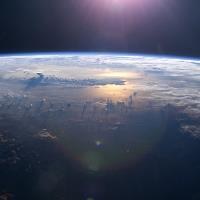(BRUSSELS) – The European Union set out its vision for better ocean governance Thursday, with a joint agenda of actions to secure the effective conservation and sustainable use of the global seas and oceans.
The global ocean economy, estimated at EUR 1.3 trillion, faces challenges such as climate change, poverty and food security that can be effectively addressed if oceans are better protected and sustainably managed.
The Joint Communication from the Commission and the EU’s foreign affairs chief, sets out 14 sets of actions in 3 priority areas: 1) Improving the international ocean governance framework; 2) Reducing human pressure on the oceans and creating the conditions for a sustainable blue economy and 3) Strengthening international ocean research and data.
The EU effort reinforces a global commitment taken in 2015 when 193 countries around the world signed up to a Sustainable Development Goal on the conservation and sustainable use of oceans.
Oceans are threatened by crime, piracy and armed robbery, said foreign affairs chief Federica Mogherini. “Attempts to assert territorial or maritime claims are affecting regional stability and the global economy. We need to use all the tools we have to shape ocean governance and make it more part of the European Union’s external action. This is also a concrete example of how the EU Global Strategy for foreign and security policy delivers in practice.”
Maritime Affairs Commissioner Karmenu Vella said the EU executive was announcing an agenda for “improving the way oceans are managed, reducing human pressure on our oceans, and investing in science. This will ensure that marine resources are used sustainably, for healthy marine eco-systems and a thriving ocean economy,” she said.
The proposal looks to improve international ocean governance framework, and the EU says it will work with partner countries to reduce maritime security threats and risks, such as piracy, trafficking in human beings, arms and narcotics.
Combatting illegal, unregulated and unreported fishing (IUU) is also a priority for the EU. The Commission will launch a pilot project to monitor illegal fishing worldwide using satellite communications.
The EU will propose by 2017 a strategy on plastics, which will contribute to reducing marine litter by at least 30% by 2020.
And the Commission will propose how to develop the EU’s Blue Data Network, the European Marine Observation and Data Network, which provides data from over 100 marine research bodiesis database into a worldwide marine data network.
The WWF welcomed the EU’s vision. However, it also called for more concrete actions to face the crisis of the oceans affected by climate change and increasing industrial exploitation. It said the EU list of intentions lacked a comprehensive action plan to deliver the changes in global ocean governance that are so desperately required.
Joint communication and Factsheet available on International Ocean governance website


